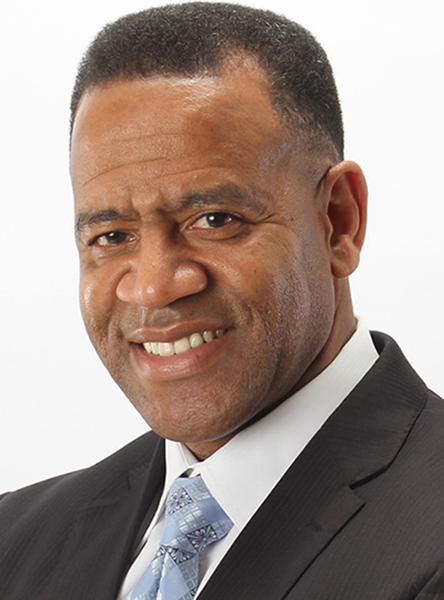
ATLANTA (BP) — It’s subjective, but probably safe to say that most Bible readers tend to gloss over the phrase “know we no man after the flesh” in 2 Corinthians 5:14-21.
Our tendency is to focus on the blessing of regeneration on an individual basis in verse 17 as the passage’s central thrust and not consider its communal implications for the body of Christ.
To “know no man after the flesh” (KJV) in verse 14 is “to regard no one from a worldly point of view” (NIV).
Knowing men after the flesh is to honor the status of men (titles and offices) or a world system (politics and polity) over the sovereignty of God and His will for His Kingdom.
When we do this, we are misaligned with the purpose and power of God for the church, fostering division (schism) and dysfunction (sedition), making the ministry of reconciliation, noted in verses 18-20, even more challenging.
One died for all, 2 Corinthians 5:14-15
Because of Jesus, Christians no longer live for themselves but for Him who died for us and rose again. Our personal opinions, political views, family histories and ethnicities, as important as they might be, are outranked by biblical truths and the unity of the body of Christ.
A new creation, 2 Corinthians 5:16-17
Being new creations in Christ means we stop evaluating others by worldly stereotypes. Because of the love of Christ, we are to “know we no man after the flesh.” Christ was once regarded in this way by the Pharisees, Sadducees, King Herod and Pontius Pilot. Their worldly stereotypes prevented them from seeing Him as the Messiah, the Son of God.
The apostle Paul became frustrated with the Christians in Corinth denying the truth and viewing matters from worldly perspectives. Addressing the matter in his first letter, he asked, “Are ye not carnal and behaving like mere men?” (1 Corinthians 3:3).
When our stand on issues is influenced by popular culture and moral relativism, that same question is appropriate for Christians today.
Are ye not carnal when we prioritize race and political party labels to influence where we stand on public policy matters? Are ye not carnal when we prioritize labels of Baptist, Methodist, Catholic and Church of God in Christ and other denominations over global strategies to unify the body of Christ?
Please hear my heart: We should be fully involved in the political process and in our denominations. I am a patriotic American and proud to be Baptist, but our political and church engagement should not have priority over our desire to please God.
Racism is carnal, abortion is carnal and same-sex attraction is carnal, and Christians who embrace these behaviors do so from ideologies more inclined to please men than God. That is, they are all “after the flesh.”
The new creation in us, however, convicts us to assess these issues from a spiritual perspective based upon the absolute truth of Scripture. No matter the consequences regarding life, marriage, family, religious liberty or any public policy matter such as LGBTQ rights, legalized marijuana or immigration, we must always stand on the spiritual and not the carnal.
Even so, to know no man after the flesh is the divine point of view that all human beings are precious in the eyes of God. It means we no longer judge people through carnal lenses of black, white, Hispanic; Democrat or Republican; conservative, progressive or liberal; gay or straight, Union or Confederate, rich or poor. Jesus loves them all. All of them are image-bearers of the Most High God and are precious in His sight.
The ministry of reconciliation, 2 Corinthians 5:18-21
God reconciled us to Himself through Christ not holding our sins (natural-born traits, behaviors and lifestyles) against us, making us one reconciled family. As reconciled sons and daughters, we have an obligation to “the ministry of reconciliation,” bringing all for whom Christ died into God’s family.
We are now ambassadors for God on Christ’s behalf appealing to all who are alive in Him. God has given us the calling of reconciling others back to Himself. Of course, this means evangelism, but it also means reconciling divisions within the body of Christ.
As sons and daughters of God we can longer be content celebrating individual regeneration — one soul at a time — making disciples only to build a congregation and a denomination. Yes, heaven rejoices when one soul is saved; however, our collective efforts should ultimately lead to a global ministry of reconciliation, unifying the body of Christ. We should be just as committed to reconciliation of Christ’s “body” as we are to regeneration of one “body.”
I make this appeal to all believers with watery eyes. Know we no man after the flesh. Let us be reconciled to God and commit ourselves to the ministry of reconciliation.
















